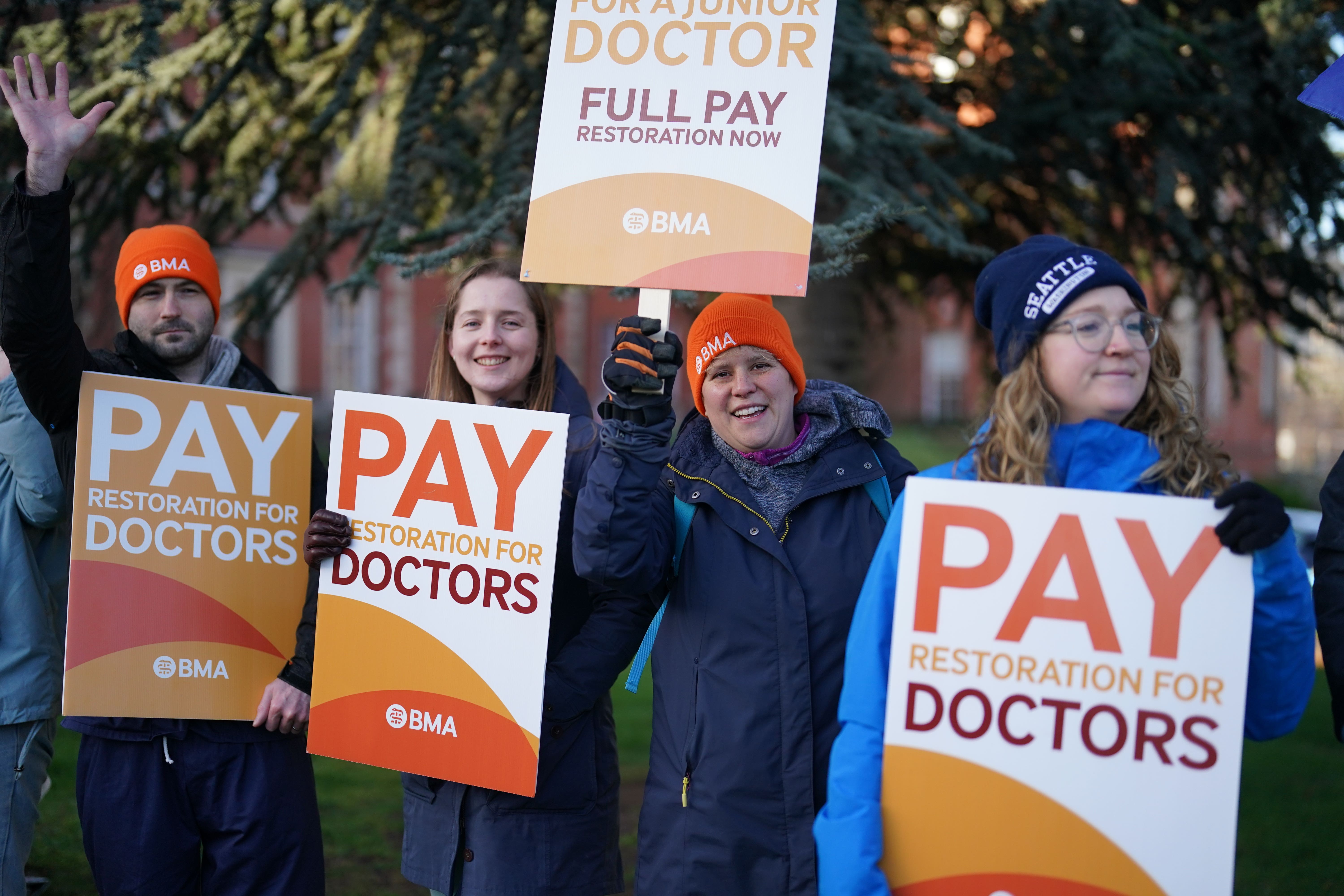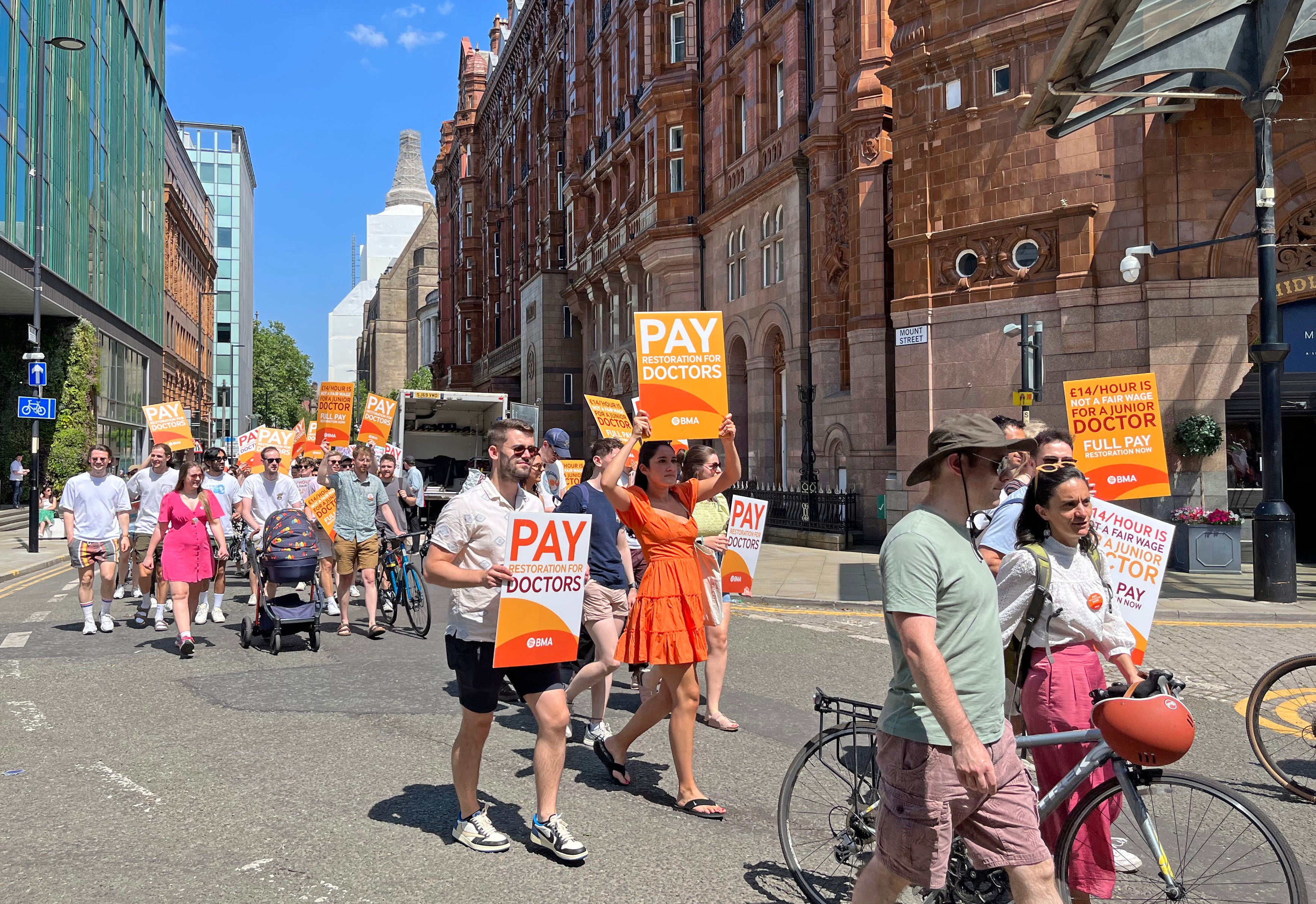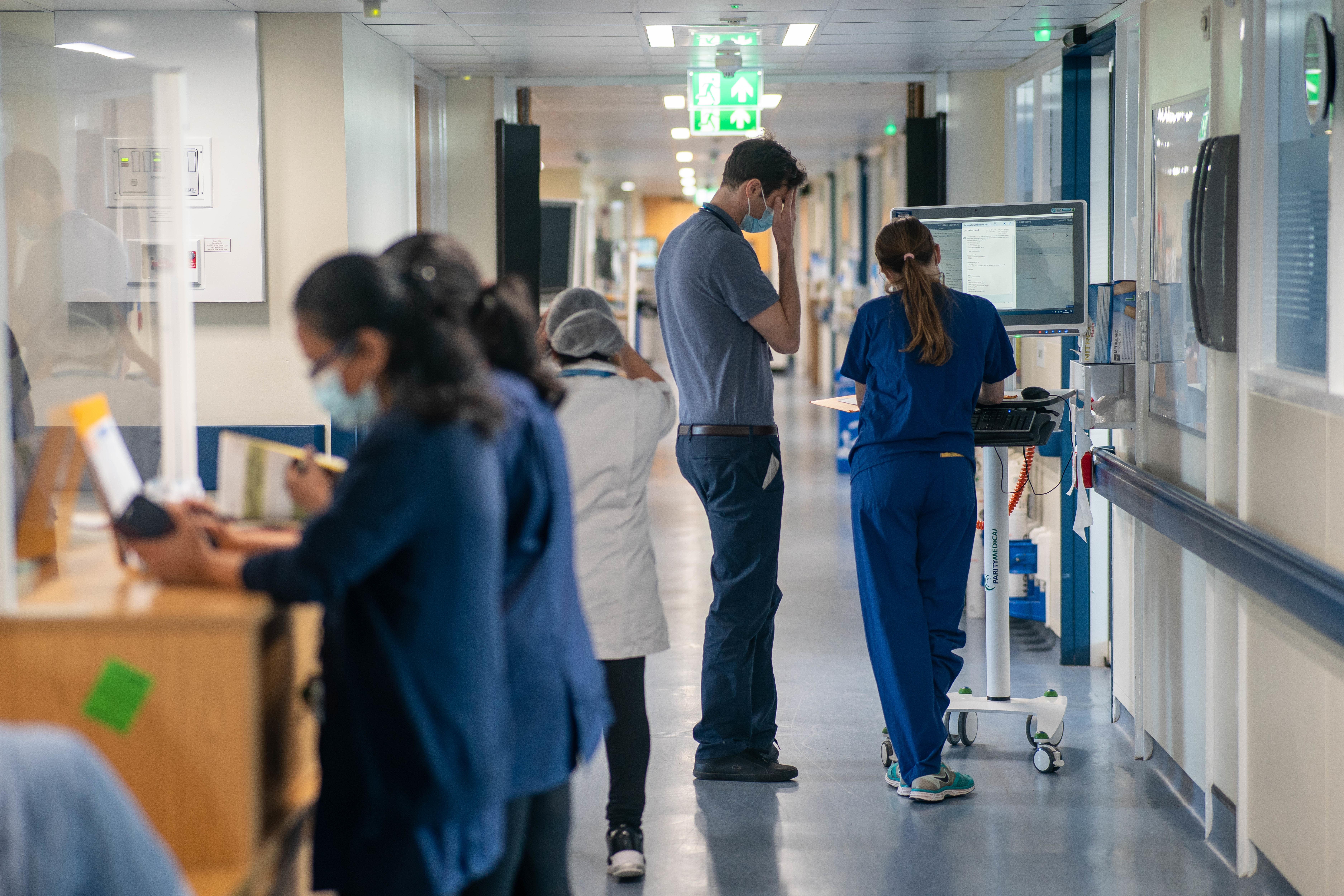Junior doctors to strike for five days in longest walkout in NHS history
Members of the British Medical Association in England will walk out over five days

Your support helps us to tell the story
From reproductive rights to climate change to Big Tech, The Independent is on the ground when the story is developing. Whether it's investigating the financials of Elon Musk's pro-Trump PAC or producing our latest documentary, 'The A Word', which shines a light on the American women fighting for reproductive rights, we know how important it is to parse out the facts from the messaging.
At such a critical moment in US history, we need reporters on the ground. Your donation allows us to keep sending journalists to speak to both sides of the story.
The Independent is trusted by Americans across the entire political spectrum. And unlike many other quality news outlets, we choose not to lock Americans out of our reporting and analysis with paywalls. We believe quality journalism should be available to everyone, paid for by those who can afford it.
Your support makes all the difference.Thousands of junior doctors in England will stage the longest-ever single walkout in NHS history when they go on strike for five days next month in a dispute over pay and staffing.
Members of the British Medical Association union announced on Friday that they are staging a walkout from 13 to 18 July after a ballot came out in favour of further strike action.
More than 500,000 medical procedures have been put back in England alone since strikes began towards the end of 2022. The five-day strike in July will be the fourth this year.
Co-chairs of the BMA junior doctors committee Dr Robert Laurenson and Dr Vivek Trivedi said in a joint statement that action is needed as government inaction has led the NHS to the “point of collapse”.
“With the 75th birthday of the NHS just days away,” the statement read. “Neglect of its workforce has left us with 7.4 million people on waiting lists for surgery and procedures, and 8,500 unfilled doctors’ posts in hospitals.
“It has been almost a week since the last round of strikes finished but not once have we heard from Rishi Sunak or Steve Barclay in terms of reopening negotiations since their collapse of our talks and cancelling all scheduled meetings a month ago.”
The BMA wants “full restoration” of pay for its members to reverse what it estimates is a 26 per cent real terms cut in pay since 2008, and the union has rejected the government’s 5 per cent pay increase offer.
The statement added: “What better indication of how committed they are to ending this dispute could we have?
“As their refusal to even discuss pay restoration leads to continued disruption to the health service, more than four-fifths of junior doctors report finding their patients supportive – they understand the value of a fully staffed and resourced NHS.”
The strike account was announced after a BMA survey showed that junior doctors report being inundated with more opportunities to move abroad in the last four months than ever before.
Just over half of the nearly 2,000 junior doctors surveyed said they have received more job advertisements from recruiters for overseas jobs since strikes were announced.
The BMA said that improved pay can stem the flow and not tempt junior doctors into working overseas.

The government of South Australia even paid for trucks to be sent to junior doctor picket lines carrying job adverts offering improved pay if those doctors emigrated, it was revealed.
The statement continued: “Restoring pay can stem the flow of Australian job adverts in doctors’ social media feeds – and lead to a future 75 years of doctors being paid fairly, in a rebuilt workforce and NHS that this country can continue to be proud of.”
Sir Julian Hartley, chief executive of NHS Providers, said: “Trust leaders, staff and patients will have that sinking feeling at the prospect of five straight days of strike disruption, the longest-ever single period of industrial action in the history of the NHS.

“After a three-day walkout by junior doctors already this month, forcing more than 100,000 more procedures and appointments to be rescheduled (more than 651,000 in total since December) and with nurses, radiographers and consultants – who could strike for two days in July – being balloted too this figure is bound to rise by many thousands more.”
Sir Julian added: “Trust leaders’ priority throughout any industrial action will remain to keep patients safe and deliver high-quality care but this is getting tougher the longer strikes persist, and it’s getting more and more expensive to find cover for staff on picket lines.
“This can’t go on and become ‘business as usual’. We urge the Government and unions to break the deadlock and enter arbitration to find a way to end disruptive strikes.”



